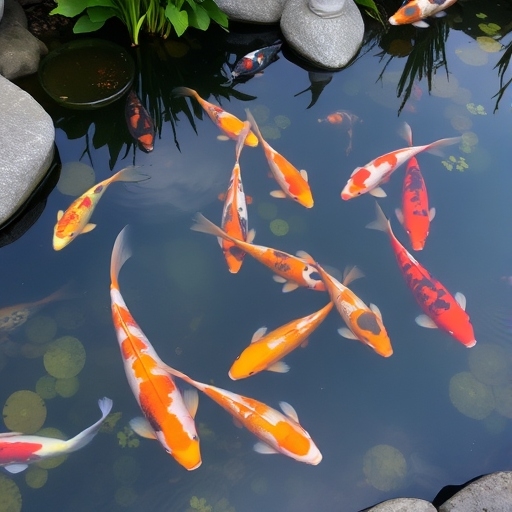Koi fish, renowned for their striking colors and graceful movements, hold a special place in Japanese culture and beyond. These ornamental fish are not only admired for their aesthetic appeal but also revered for the deep symbolism they carry, representing perseverance, strength, and prosperity.
The Origins of Koi Fish
Koi, derived from the Japanese word “nishikigoi,” meaning “brocaded carp,” trace their origins back to East Asia. Initially bred in China over a thousand years ago, they were introduced to Japan during the Yayoi period. Japanese breeders elevated koi breeding into an art form, producing vibrant color patterns and distinct varieties such as Kohaku, Sanke, and Showa.
Symbolism of Koi
In Japanese folklore, koi fish are celebrated as symbols of determination and ambition. A well-known legend tells of koi swimming upstream against strong currents and waterfalls in the Yellow River. Upon reaching the top, one koi transformed into a majestic dragon, embodying the reward for perseverance and courage.
Today, koi represent strength in adversity, good fortune, and success in life’s endeavors. They are also associated with balance and harmony, making them a popular motif in art, tattoos, and home decor.
Varieties of Koi Fish
Koi fish come in a stunning array of colors and patterns, each variety holding unique significance:
- Kohaku: White body with red markings, symbolizing purity and love.
- Taisho Sanke: White base with red and black patterns, representing strength and endurance.
- Showa Sanshoku: Black body with red and white markings, often linked to change and progress.
Breeders and enthusiasts often seek specific patterns and vibrant coloration, which can significantly increase a koi’s value.
Koi Ponds: A Place of Tranquility
Koi fish are often kept in beautifully landscaped ponds designed to create a serene environment. These ponds not only enhance the aesthetic appeal of gardens but also provide a soothing space for relaxation. The gentle movements of koi swimming in crystal-clear water evoke a sense of peace and mindfulness.
Proper care is essential to maintain a healthy koi pond. Clean water, adequate filtration, and balanced nutrition are vital to the well-being of these fish. Additionally, koi thrive in outdoor environments where they can experience seasonal changes, promoting their vibrant colors and robust health.
The Global Appeal of Koi
While koi originated in East Asia, their allure has captivated people worldwide. Koi exhibitions, competitions, and auctions are popular events where enthusiasts gather to showcase prized specimens. The most exquisite koi can fetch staggering prices, with some specimens valued at hundreds of thousands of dollars.
Conclusion
Koi fish are more than just ornamental creatures; they are living symbols of resilience, beauty, and cultural heritage. Whether in tranquil ponds or as artistic inspirations, these remarkable fish continue to inspire and captivate hearts globally.

